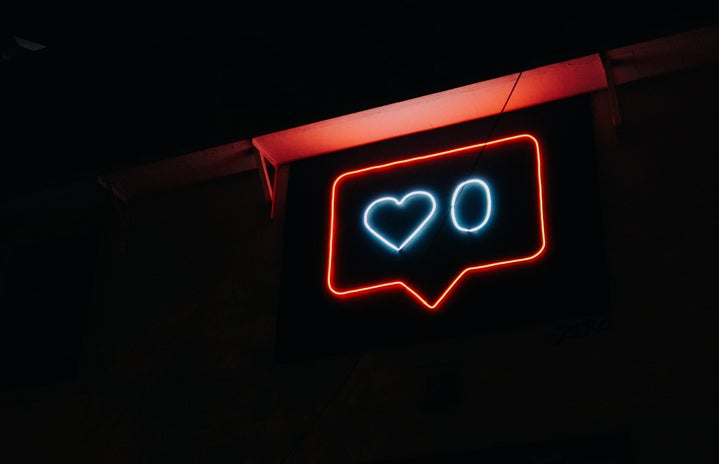For the past couple of weeks now, the topic of Facebook has continued to pop up in news headlines across almost every website combined with words like ‘data breach’. But what exactly does this mean Facebook has done and what exactly does this mean for Facebook users? Her Campus is here to try and help you make sense of it all! A few weeks ago, Facebook first started coming into news stories more often than usual after a New York Times article was released concerning Facebook unintentionally allowing a company to collect the data of millions of Facebook users. According to reports, a researcher named Aleksandr Kogan, a Russian-American who worked at the University of Cambridge, was able to harvest the data of 50 million user profiles on Facebook through an app quiz he created for the platform called ‘thisismydigitallife’. Kogan then gave the data he collected to a company called Cambridge Analytica. Cambridge Analytica is a political consulting firm created by Steve Bannon with Alexander Nix as its CEO and with funding from Rebekah and Robert Mercer. This firm was also used by the Trump Campaign during the 2016 presidential race. Cambridge Analytica is seen as basically a shell for the larger Strategic Communication Laboratories (SCL) Group, a British PR firm which is known for doing work for governments, politicians and militaries worldwide. The quiz on Facebook that allowed for this group to gain information on users worked by having the user consent to giving the app access to theirs and their friends’ Facebook profiles. So, when 270,000 Facebook users used Kogan’s app and took the quiz they consented to the app accessing not only their own profiles but also, through a loophole in Facebook’s API, that of every single friend they have on the website. Allowing for Kogan and Cambridge Analytica to be able to collect the date from 50 million raw profiles, 30 million were able to then be matched with other records that helped identify people. The type of data that Cambridge Analytica collected from the profiles included details on users’ identities, friend networks, and “likes.”
Courtesy: Reuters
Facebook prohibits the selling of data collected with this method, but Kogan sold the data anyway. According to a statement made from Facebook, it learned that Kogan violated the website’s rules by passing on the information to third parties in 2015 and that afterward got assurances from Kogan and Cambridge Analytica that they deleted the data that had been collected. However, a former Cambridge employee told the New York Times that “he had recently seen hundreds of gigabytes of data still on the company’s servers and copies of the data still remain beyond Facebook’s control.” In response, Facebook has announced it would suspend Cambridge Analytica, SCL Group, and Kogan from its platform. Additionally, in regards to this manner, it hasn’t been made completely clear by any party if any laws were actually broken, but regulators in the United States and in the United Kingdom have said that they’re looking into the matter. The reason that people keep talking about Facebook though is because that wasn’t the only scandal that has occurred in the last month. Last week the social media empire was again under fire for incidences related to overreaching data collection of its users. Facebook acknowledged last week that for years it has been collecting the call and text history of users who own Android phones, claiming to have done so with the permission of the users. According to Facebook, when a user downloads the Messenger or Facebook Lite apps onto their Android phones they are given the option to continuously upload their contacts as well as their call and text history and when this feature is turned on it begins to log the information from your phone and allowing for it to be downloaded by the user at any time using the ‘Download Your Information’ tool. However, this was done in a non-obvious way to many users who believed they were only agreeing to let the company import their phone contacts into the apps and who saw the Facebook response to the allegations the first time the company actually spelled out the practice in clear terms.
Courtesy: Chris Ratcliffe/Bloomberg
The call and text history Facebook collected wasn’t just done through their apps either. It was contact phone numbers, the duration of phone calls and text messages. Facebook has stressed that it hasn’t been collecting the actual content of any of the phone calls or text messages it’s been keeping track of, but has also declined to give any on-the-record comment to news outlets as to why the website felt that it needed to access users’ SMS metadata and call history. Facebook says that the user information is securely stored, and that they don’t intend to sell the information to third parties, but, because of the scandal involving Cambridge Analytica, it appears that the company may be vulnerable to manipulation by outside companies it voluntarily shares information with. This particular issue is one that appears to only be affecting Facebook users who use Android phones, and those using Apple products should be safe because iOS has never allowed silent access to call data. If you are a user who has been affected by this data collection you should be able to disable your opt-in feature through your app settings and, Facebook claims, this should trigger all the call and text histories that were previously logged to be deleted. As a result of the scandals, the Federal Trade Commission has announced that it will launch an investigation into the network’s privacy practices, and Facebook stock has dropped more than 12%. Additionally, many people have been making the move to delete their Facebook accounts in response. The most famous of which has been Elon Musk removing the accounts for Space X and Tesla from the website. Mark Zuckerberg has apologized in a statement on Facebook and in the form of a full-page newspaper ad, but it doesn’t seem to be enough for many users.



